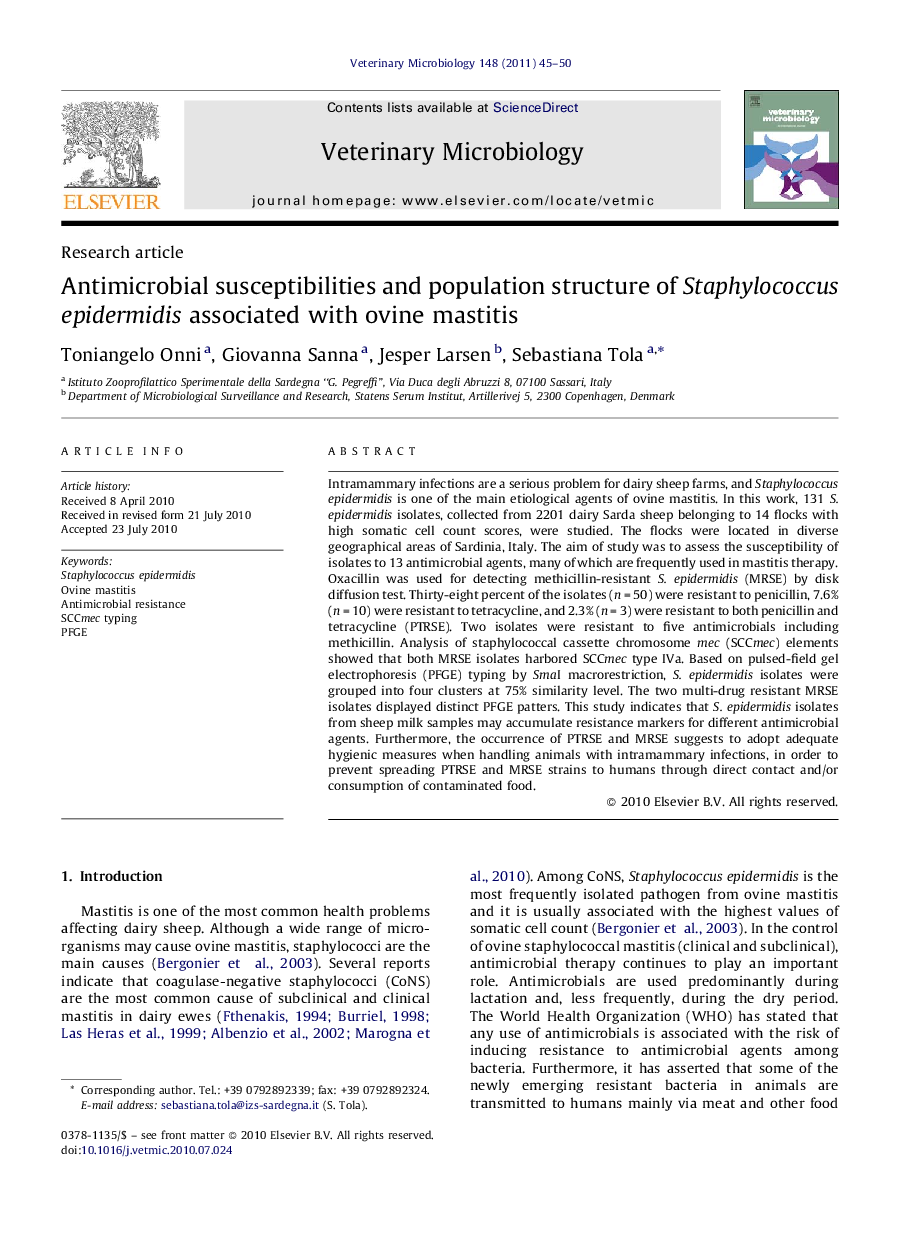| Article ID | Journal | Published Year | Pages | File Type |
|---|---|---|---|---|
| 2467752 | Veterinary Microbiology | 2011 | 6 Pages |
Intramammary infections are a serious problem for dairy sheep farms, and Staphylococcus epidermidis is one of the main etiological agents of ovine mastitis. In this work, 131 S. epidermidis isolates, collected from 2201 dairy Sarda sheep belonging to 14 flocks with high somatic cell count scores, were studied. The flocks were located in diverse geographical areas of Sardinia, Italy. The aim of study was to assess the susceptibility of isolates to 13 antimicrobial agents, many of which are frequently used in mastitis therapy. Oxacillin was used for detecting methicillin-resistant S. epidermidis (MRSE) by disk diffusion test. Thirty-eight percent of the isolates (n = 50) were resistant to penicillin, 7.6% (n = 10) were resistant to tetracycline, and 2.3% (n = 3) were resistant to both penicillin and tetracycline (PTRSE). Two isolates were resistant to five antimicrobials including methicillin. Analysis of staphylococcal cassette chromosome mec (SCCmec) elements showed that both MRSE isolates harbored SCCmec type IVa. Based on pulsed-field gel electrophoresis (PFGE) typing by SmaI macrorestriction, S. epidermidis isolates were grouped into four clusters at 75% similarity level. The two multi-drug resistant MRSE isolates displayed distinct PFGE patters. This study indicates that S. epidermidis isolates from sheep milk samples may accumulate resistance markers for different antimicrobial agents. Furthermore, the occurrence of PTRSE and MRSE suggests to adopt adequate hygienic measures when handling animals with intramammary infections, in order to prevent spreading PTRSE and MRSE strains to humans through direct contact and/or consumption of contaminated food.
